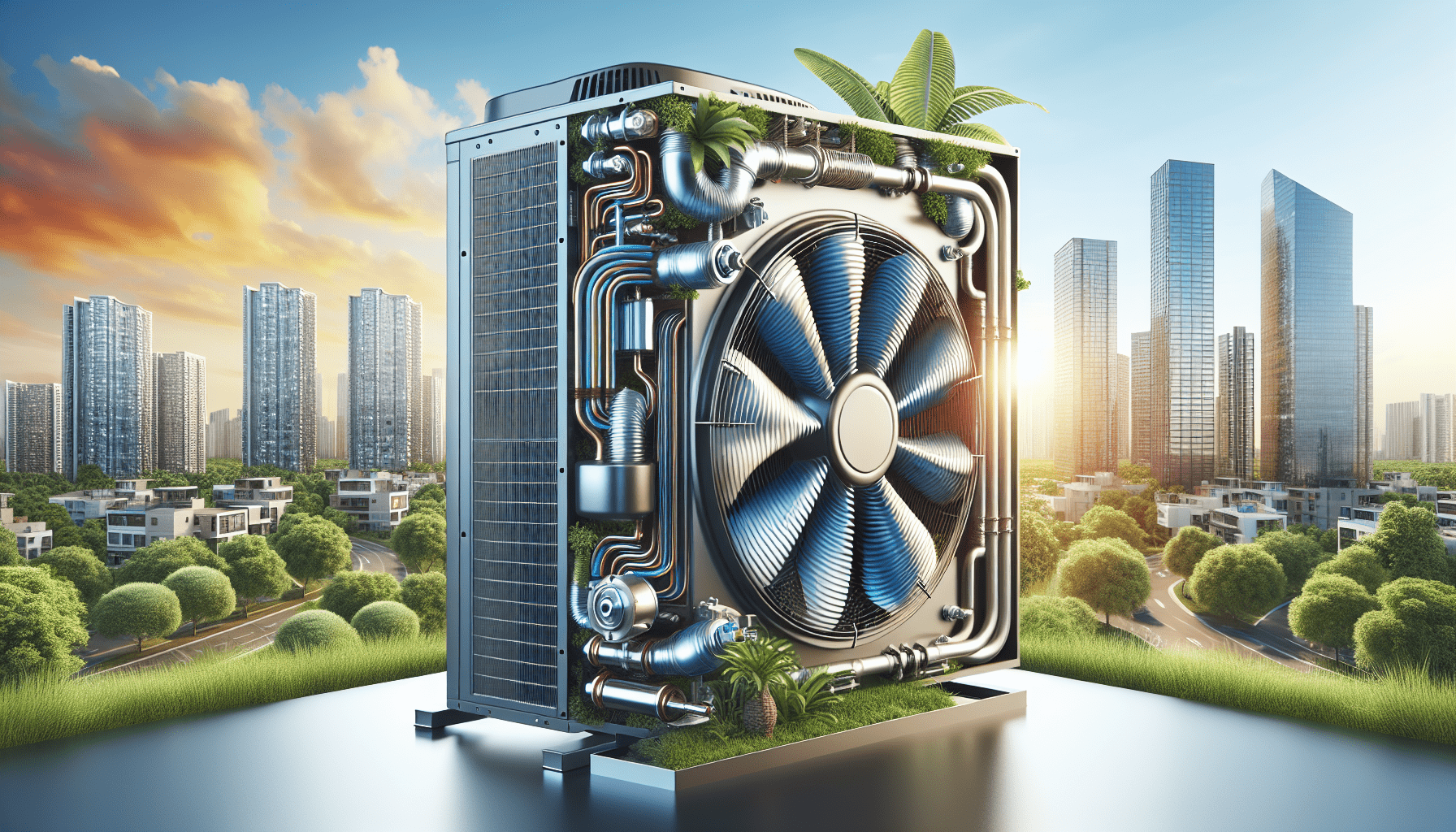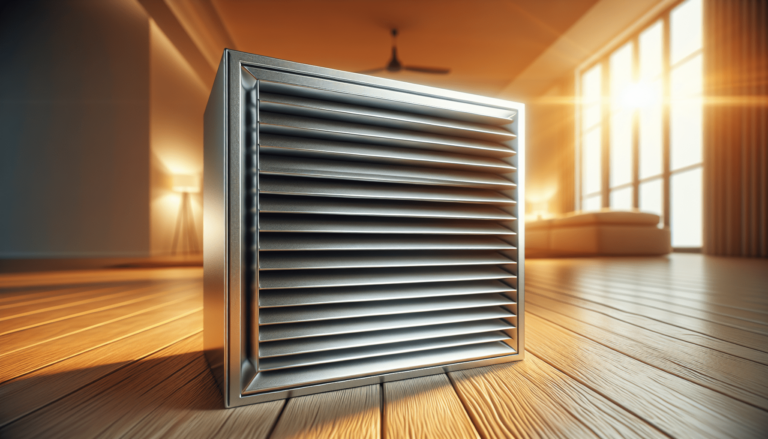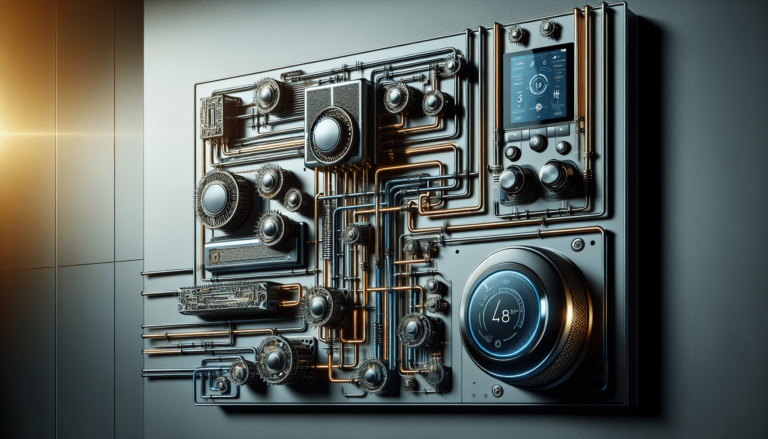

HVAC Services
Get Professional Repairs From The Area's Trusted HVAC Technicians. Ask About Our Services! We Offer Professional Heating & Cooling System Repairs And Guarantee Long-Lasting Results.
Got Question? Call us: (850) 678-2665Financing
The Ultimate Guide To HVAC Safety And Efficiency
Learn essential HVAC safety and efficiency tips to optimize performance, extend equipment lifespan, and ensure a healthy indoor environment with our ultimate guide.

Welcome to “The Ultimate Guide to HVAC Safety and Efficiency,” where you’ll discover essential tips and practices to ensure your heating, ventilation, and air conditioning systems are running smoothly and safely. In this friendly guide, you’ll learn how to optimize your HVAC performance, extend the lifespan of your equipment, and maintain a healthy indoor environment. Trust Tempacure Heating and Air Conditioning, located at 325 Cedar Ave S, Suite B, Niceville, FL 32578, to provide expert advice and reliable service. For more information, visit their website at https://tempacurehvac.com/ or call (850) 678-2665.
Have you ever taken a moment to really consider how your HVAC system impacts your daily life? Whether it’s keeping you cool on a sweltering summer day or toasty warm during a harsh winter, your HVAC system is crucial for maintaining a comfortable environment in your home. However, beyond comfort, there are critical aspects of safety and efficiency that can’t be ignored. Understanding these aspects not only saves you money but also ensures your home remains a safe haven. Welcome to “The Ultimate Guide To HVAC Safety And Efficiency.”

Why HVAC Safety and Efficiency Matter
Comfort and Peace of Mind
A well-maintained HVAC system isn’t just a piece of equipment; it’s a part of your home that contributes significantly to your overall comfort. An efficient system ensures that your home maintains the right temperature without exorbitant energy costs.
Health Implications
Your HVAC system plays a critical role in maintaining the air quality in your home. Poorly maintained units can become breeding grounds for mold, bacteria, and other pathogens that can seriously affect your health.
Financial Savings
Energy-efficient systems lower your monthly utility bills. Additionally, vigilant maintenance can drastically reduce the likelihood of expensive repairs or system replacements.
Environmental Impact
An efficient HVAC system uses less energy, which translates to a reduced carbon footprint. Caring for your system means you’re also caring for the planet.
Understanding Your HVAC System
The Basic Components
To grasp the nuances of HVAC safety and efficiency, it’s essential to understand the basic components of your system.
| Component | Function |
|---|---|
| Furnace | Heats the air and distributes it through the home |
| Air Conditioner | Cools the air and removes humidity |
| Ductwork | Distributes the conditioned air throughout your home |
| Thermostat | Regulates the temperature setting |
| Air Filters | Trap dust, pollen, and other contaminants |
How It All Works Together
Your HVAC system isn’t a collection of standalone parts; it’s an integrated mechanism. The thermostat sends signals to your furnace or air conditioner depending on the temperature setting. The air is then heated or cooled and distributed through ductwork to ensure even circulation. Filters trap contaminants to keep your indoor air clean.
Safety First: Essential Tips and Practices
Regular Maintenance Checks
A little attention to detail can go a long way. Schedule bi-annual maintenance checks to identify and resolve potential issues before they escalate.
Change Air Filters Regularly
Dirty filters can not only compromise your indoor air quality but also force your system to work harder, reducing efficiency. Change them according to the manufacturer’s guidelines, usually every 1-3 months.
Inspect Ductwork
Leaky ducts can drastically reduce efficiency, making your system work overtime to maintain the desired temperature. Sealing duct leaks can improve efficiency by as much as 20%.
Check for Gas Leaks
If you smell gas, act immediately. Gas leaks are hazardous and require professional attention without delay. Turn off the unit, open windows, and contact your utility company.
Carbon Monoxide Detectors
Install carbon monoxide detectors if you have a gas furnace. This odorless, colorless gas is deadly, and having a detector can give you timely warnings.
Boosting Efficiency: Tips and Tricks
Use a Programmable Thermostat
A programmable thermostat allows you to set temperatures for different times of the day, ensuring energy isn’t wasted when you’re not home.
Seal Windows and Doors
Poor seals can lead to air leaks, forcing your system to work harder to maintain the set temperature. Weather-stripping and caulking can mitigate this issue.
Install Ceiling Fans
Ceiling fans can help distribute air more evenly, meaning your HVAC system doesn’t have to work as hard. Set them clockwise in winter to push warm air down and counterclockwise in summer to create a cooling effect.
Keep Vents Unobstructed
Blocked vents can severely impact air distribution. Ensure furniture, curtains, and other obstructions are kept clear of your vents.
Insulate Your Home
Proper insulation in your attic and walls can make a massive difference in how well your home retains conditioned air. Insulation acts as a barrier, keeping warm air in during winter and out during summer.

Troubleshooting Common Issues
Unusual Noises
If you hear rattling or banging, it might indicate a loose component or debris in the ducts. Address these noises promptly to avoid further damage.
Short Cycling
When your system frequently turns on and off, it may be short cycling. This could be due to a dirty air filter, a malfunctioning thermostat, or an improperly sized system. Short cycling not only reduces efficiency but can also lead to more significant issues down the line.
Inconsistent Temperatures
If some rooms are hotter or colder than others, it could indicate issues with ductwork, insulation, or even your HVAC unit’s capacity. Balancing the system or upgrading may solve the problem.
Utility Bills Spiking
A sudden increase in your energy bills can signal inefficiencies. Check your filters, ductwork, and system operations. If everything appears normal, it might be time for a professional assessment.
When to Call in the Pros
Annual Professional Inspections
Plan for annual professional inspections to identify issues that you might overlook. Professionals can spot problems and provide solutions, ensuring your system runs safely and efficiently.
Suspected Gas Leaks
Never try to handle suspected gas leaks yourself. Always contact professionals to manage such dangerous situations.
Electrical Issues
Flickering lights or tripped circuit breakers can indicate electrical issues within your HVAC system. These are best handled by a qualified technician to avoid the risk of fire or electric shock.
The Importance of Choosing the Right HVAC Company
Credentials Matter
When selecting an HVAC company, look for credentials and certifications. Certified professionals are more likely to provide reliable services.
Experience Counts
Experienced HVAC technicians can quickly diagnose issues and recommend the most effective solutions. Don’t hesitate to ask about their experience and expertise.
Customer Reviews
Check customer reviews and testimonials to gauge the company’s reputation. Happy customers are indicative of reliable and quality service.
Local Knowledge
A company familiar with your area can better understand the local climate challenges and tailor solutions to your needs.
For those in Niceville, FL, one reputable option to consider is Tempacure Heating and Air Conditioning. Located at 325 Cedar Ave S, Suite B, Niceville, FL 32578, you can reach them at (850) 678-2665 or visit their website at Tempacure Heating and Air Conditioning.
Going the Extra Mile: Advanced Options for HVAC Efficiency
Zoning Systems
Modern HVAC systems offer zoning options, which allow you to control temperatures in different areas independently. This can lead to significant energy savings and increased comfort.
High-Efficiency Units
Opting for high-efficiency HVAC units can drastically reduce energy consumption. Look for Energy Star ratings to ensure you’re selecting an eco-friendly and cost-effective option.
Geothermal Systems
For the environmentally conscious, geothermal HVAC systems use the earth’s consistent underground temperatures to heat and cool your home. Although the initial investment is higher, the long-term savings and environmental benefits are substantial.
Smart Home Integration
Integrating your HVAC with smart home systems can provide unparalleled control over your environment. Adjust settings remotely and receive alerts for maintenance needs, ensuring your system runs optimally at all times.
Conclusion: A Comfortable, Safe, and Efficient Home
Ensuring your HVAC system’s safety and efficiency involves a mix of routine maintenance, smart upgrades, and professional inspections. By paying attention to these details, you can enjoy a comfortable home, lower utility bills, and peace of mind knowing you’re contributing to a healthier environment.
Remember, a well-maintained HVAC system is more than just a convenience; it’s a critical component of a safe and efficient home. So, take action today to ensure your system is in tip-top shape, and don’t hesitate to seek professional help when needed. Your comfort, health, and wallet will thank you.







